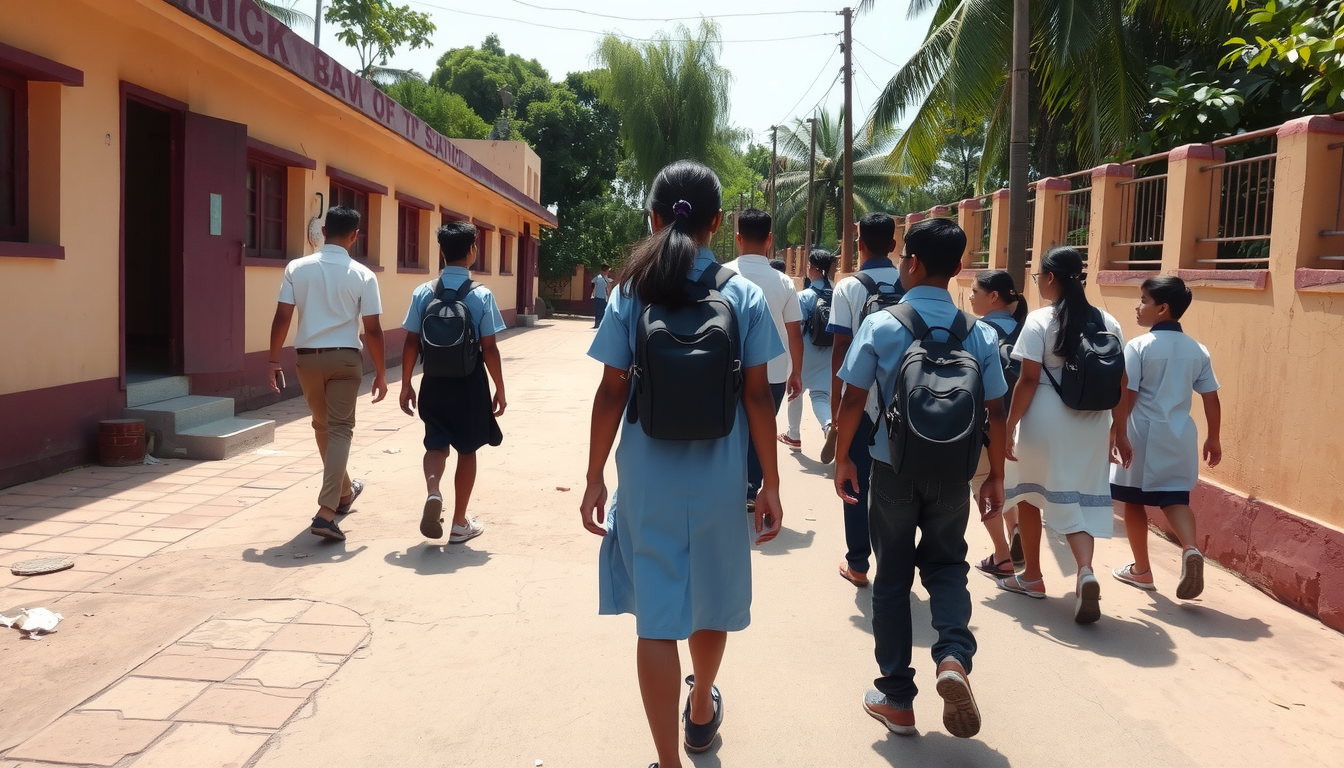When Students Miss School, Do They Drift Away From Teachers Too?

School absenteeism is not a new problem in Bharat — but it has worsened since the COVID-19 pandemic. From rural government schools to urban private ones, teachers across the country are seeing a growing number of students regularly missing classes. And it’s not just about learning loss. There’s something deeper happening that we don’t talk about enough:
👉 When students are absent often, their relationship with the teacher begins to weaken.
Let’s explore why that matters — and what we can do about it.
Why Are Students Missing School?
There are many reasons children in Bharat miss school regularly:
- Lack of transport in rural areas
- Domestic responsibilities, especially for girls
- Illness, mental health issues, or nutrition-related problems
- Disinterest or boredom with school
- Fear of academic failure or bullying
- Post-pandemic disengagement
The Ministry of Education’s UDISE+ data shows irregular attendance in early grades, especially in government schools. The reality is: once a child starts missing school frequently, coming back becomes harder and harder.
Absenteeism Affects Relationships — Quietly But Surely
You might think that when a child returns after a long absence, they’ll pick up where they left off. But research and real-life experience tell a different story.
Teachers often begin to see frequently absent students as disinterested or weak in academics. Even unintentionally, they may stop calling on them in class, offering fewer opportunities, or having lower expectations. Over time, the emotional bond between the teacher and student begins to fade.
And here’s the most worrying part — these children aren’t always "troublemakers." Many are quiet, withdrawn, and unsure of how to reconnect with school life.
Instead of acting out, they quietly disconnect, and that’s much harder to notice.
Why This Matters So Much in Early Years
In the foundational years — from pre-primary to Class 2 — school is not just about academics. It’s where children build their first relationships outside the family. If they feel disconnected early on, it sets a pattern for the years to come.
A young child who doesn’t feel noticed or valued may stop trying altogether. They begin to see school as a place where they don’t belong.
And when teachers, even unknowingly, treat them as “less capable,” it reinforces this belief.
What Can Schools and Teachers Do?
At Tailwnd, we believe that relationships drive learning. So instead of focusing only on tracking attendance, we need to look at why students are absent — and what happens when they return.
Here are some suggestions for schools and educators:
🧡 1. Don’t Assume Disinterest
If a child is frequently absent, look beyond behaviour. Talk to them. Ask what’s going on. Often, they’re waiting for someone to notice.
🧩 2. Rebuild Trust, Not Just Catch Up
When children return after a break, welcome them warmly. Instead of only rushing to cover missed lessons, spend time reconnecting emotionally.
🧸 3. Observe Outside the Classroom
Sometimes the best way to understand a student is by watching how they interact during recess or playtime. Withdrawal during play can signal deeper feelings of isolation.
🧠 4. Avoid Labelling
Let’s stop using terms like “lazy,” “weak,” or “irregular” without understanding the full picture. Labels create lasting damage.
👥 5. Build Bridges With Parents
Many parents are unaware of the long-term effects of absenteeism. Simple, non-judgmental conversations can help build a partnership to get students back consistently.
Teachers Need Support Too
Let’s not forget: absenteeism affects teachers as well. Constantly adjusting plans, reteaching lessons, and managing gaps can be exhausting. That’s why schools need to give teachers the time, tools, and emotional space to support returning students effectively.
Final Thoughts
In Bharat’s diverse classrooms, every student brings a unique story. When they are absent, it’s more than just a missed class — it’s a potential crack in a valuable relationship.
If we want students to succeed, we must first make them feel seen, safe, and supported — especially when they’ve been away.
Let’s shift the focus from punishment to reconnection. From tracking attendance to building belonging.
Because when students feel they matter, they’ll want to come back — and stay.





